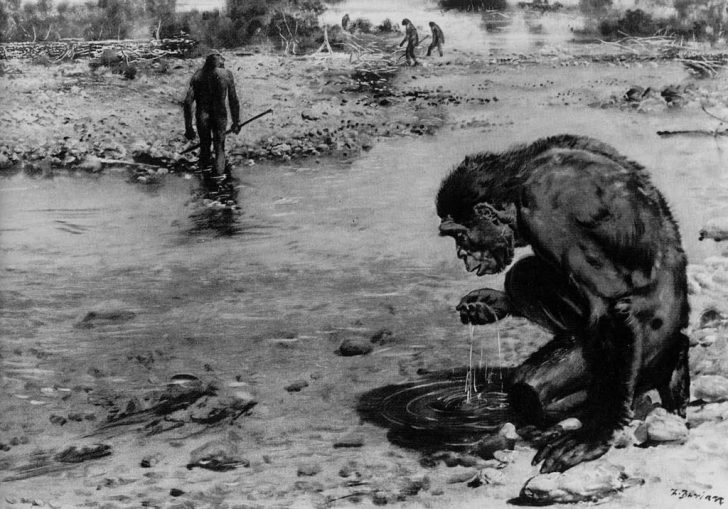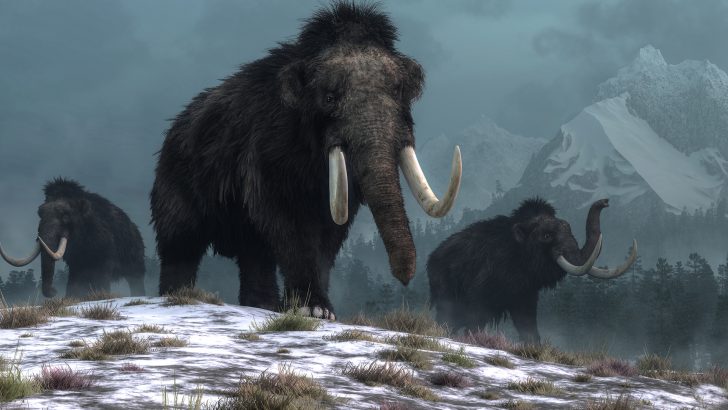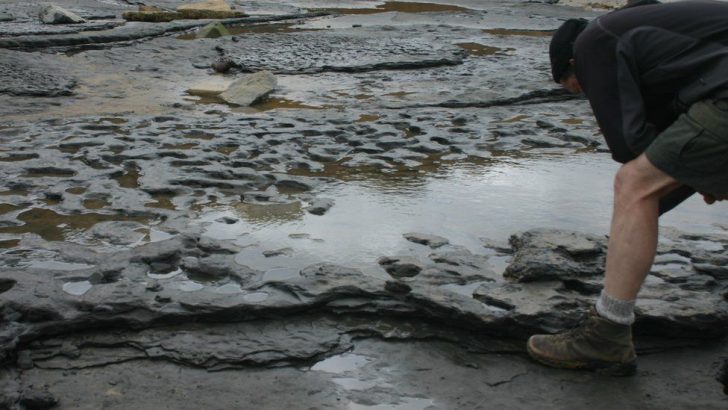Let your imagination wander back over a million years ago - but brace yourself for an unexpected twist. Rather than beholding a scene of early humans thriving in Europe's prehistoric terrains, you will be faced with a vast, chilling void.
The contours of Europe were once transformed into a seemingly uninhabitable glacial expanse, a revelation that reshapes how we perceive our ancestors' existence on this continent.
While earlier narratives proudly proclaimed that Europe had been continuously occupied by our ancestors for an uninterrupted 1.5 million years, this new page in history reveals an unforeseen hiatus. An abrupt climatic jolt forced humans out of their European homes, and their absence spanned a massive 200,000 years.

BBC / Since early humans did not have warm clothes to resist the freezing temperature, the best thing they could do was flee from Europe.
Europe's Cold Awakening
Researchers, in their relentless quest to decode Earth's past, examined ocean sediment layers dating back 1.1 million years. Their analysis painted a chilling picture: Europe's temperatures had plummeted drastically by over 5°C.
This sudden shift would have engendered a swift environmental transformation. Meandering rivers turned into immobile ice paths, green expanses morphed into white wastelands, and the region's once-abundant fauna either became extinct or migrated.
Visualize the scenario: Early humans, equipped with primitive tools and devoid of today's understanding of insulation, battling against a cold that was both relentless and unforgiving. The chilling gales, devoid of any warmth, provided a stark signal. Thus, it was time to leave.

GTN / Some one million years ago, during the Ice Age, early Europeans were forced to flee because of extremely dropping temperatures.
Journeys Beyond the Frost
Human history is riddled with tales of adaptation and survival, and this was no different. With Europe's doors seemingly closed by nature itself, our early ancestors embarked on quests to more hospitable locales, likely in parts of Asia or Africa. These new environments, while devoid of icy chills, had their own set of intricacies. Terrains never trod upon, predators unseen, and plants untested.
Yet, it is in challenges that humanity's spirit of innovation often shines brightest. New habitats meant new strategies. As they settled, they innovated – creating new tools, foraging unfamiliar fruits, and even encountering and mingling with other hominin species.
Europe Beckons Once More
As the wheel of time spun, 200,000 years elapsed. Europe's icy barriers began to recede, heralding a more welcoming environment. For the descendants of those initial migrants, the call of their ancestral lands became irresistible.

Elle / After 200,000 years, early Europeans returned as the temperature went back to normal.
Europe was not just a geographic location. Instead, it was an intrinsic part of their identity. Armed with accumulated knowledge and a myriad of new skills from their prolonged ‘sojourn,’ they returned.
However, this was not merely a homecoming. It was a renaissance. The Europe they re-entered was a fertile ground, pulsating with opportunities. This reclaimed land bore witness to a resurgence of human activity, laying the foundations for generations that would follow.
This narrative of Europe’s abrupt transformation and humanity’s ensuing odyssey is more than just a historical revelation. It epitomizes the resilience inherent in our DNA. Adversities, no matter how daunting, have been met with adaptability and an unwavering will to endure.








